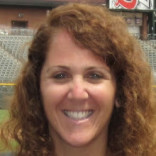Do the origins of the Torah have any impact on how I observe? If so, what role does it play? Is it all or nothing? Why do we think in black and white? Will I ever be able to prove the origins of the Torah? If I could, would that change how I practice? Do I only practice how I practice because I feel beholden to one vision or another that someone else has presented?
If I believe the Torah was written by God, then the authority of Biblical law is God and Biblical law can only be changed by God. If I believe the Torah was written by humans, than I will probably believe the authority of Biblical law is humans and Biblical law can be changed by humans.
For instance, driving on shabbat is prohibited in the Torah because it violates the biblical commandment of lighting a fire, among other prohibitions. If I believe the Torah was written by God, that prohibition can only be changed by God. If I believe the Torah was written by humans, then I can say that the Torah was written by humans at a specific time period for a specific situation. Continuing down that path, I could make the argument that since humans wrote the Torah to respond to their time period, it is our job today to make sure that Jewish law responds to our time period and that driving on shabbat to engage in shabbat experiences of services, family or friends is permissible and may even be encouraged.
There is an argument that could be made that once the floodgates open and humans are left as the authority for deciding or changing Biblical law, we will decide what is subjectively best for us and all of Judaism will wash away. What if it is something in the middle? God and us working together to figure out how to bring the most holiness, respect and dignity to the world. That would be a lot of work, but I do believe that is what Judaism is about, the brit, the covenant, between us and God.

